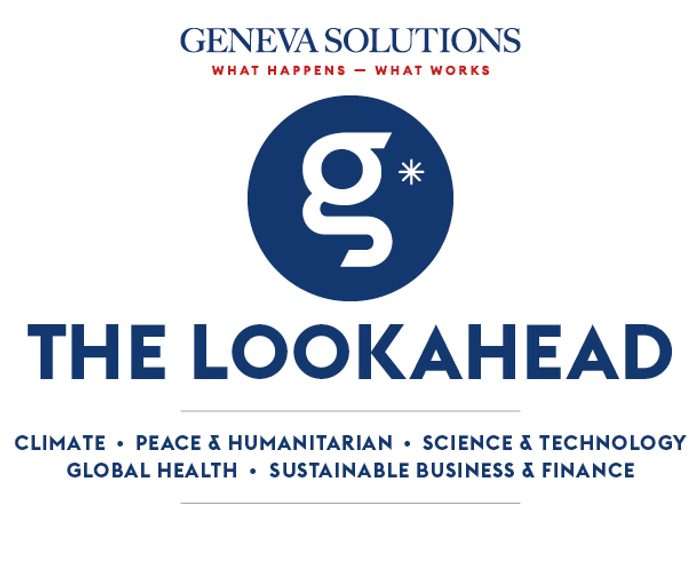Good morning, this is Michelle. All eyes are on the Amazon this week as nations gather for another UN climate summit. Expectations are high for a meeting that will shine a spotlight on a fragile habitat crucial for regulating the climate, and on its Indigenous stewards. But amid aid cuts, climate denialism, and the absurdity of cramming a mega-conference into a city of limited capacity, the mood is muted.
We’re also following the race to lead the UN refugee agency. We spoke with Pekka Haavisto, Finland’s candidate, as he passed through Geneva. Meanwhile, the Human Rights Council will debate atrocities in El Fasher this Friday. |

Pekka Haavisto, Finland's former foreign minister for foreign affairs, during the presidential campaign in Helsinki, 11 February 2024. (Keystone/AP Photo/Sergei Grits)
|
|
|
🌳BELEM KICK-OFF.
After world leaders clocked in last week to give lofty speeches about their climate plans, Cop30 negotiations among nearly 200 nations begin in earnest today in the Brazilian port town
Among those expected are delegates from poorer nations who said they had been priced out of the conference, after Brazil offered to pick up the tab for rooms on cruise ships.
|
|
Happy birthday.
This Cop also marks the 10th anniversary of the Paris deal, where the 1.5°C target became the North Star. But what have we achieved so far? The New York Times has done a neat breakdown in graphics.
|
|
Climate scrabble.
Amid lagging – and often lacking – emissions targets and climate finance, Brazil said its “Cop of implementation” will aim to build on earlier promises. Some of the big themes to be discussed include a mix of old and new jargon.
Baku to Belém to trillions. The idea of a roadmap to scale climate finance to at least $1.3 trillion a year by 2035 emerged at Cop29 after disappointment over the meagre $300bn-per-year goal agreed in Azerbaijan.
Last week, the Brazilian presidency unveiled a new and more detailed strategy, insisting that funding is not optional. It includes debt swaps, carbon markets, government-backed concessional funding, south-south cooperation and a tripling of payments from multilateral climate funds by 2030 compared to 2022.
GGA. Since the Global Goal on Adaptation was introduced in general terms in the Paris treaty a decade ago, countries have struggled to measure progress on adopting measures to cope with climate shocks. Countries will now be expected to agree on indicators to track those efforts. With a previous commitment expiring this year, delegates will discuss a new target for financing, with developing nations calling for a tripling of funding from 2025 levels by 2030.
TFFF. The Tropical Forests Forever Facility, Brazil's flagship initiative, aims to raise $125bn to protect the Earth's lungs. The launch last week hit a snag after the UK, despite helping create the fund, said it would not pitch in for now, with sources telling The Guardian, “The Brazilians are fuming.”
Still, Norway, Brazil and Indonesia and several others stepped up, kick-starting the fund with $5.5bn.
|
|
🚨EL FASHER RIGHTS EMERGENCY.
The Human Rights Council will hold a special session this Friday on abuses in Sudan’s El Fasher following harrowing reports of mass killings, rape and other atrocities committed since the capital of North Darfur fell to the Rapid Support Forces on 26 October and has sent at least 82,000 people fleeing, according to the UN.
The United Kingdom, along with Germany, Norway, Ireland and the Netherlands, presented a letter dated 5 November to council president Jürg Lauber, citing “credible reports of alarming violations and abuses of international human rights law and violations of international humanitarian law”.
The request had the backing of over 50 states, mainly from Europe and Latin America, but also South Africa, Sierra Leone, Ghana and Gambia.
– PDD, KJ and ML
|
|
|
GS news is a new media project covering the world of international cooperation and development. Don’t hesitate to forward our newsletter!
Have a good day!
|

|
|
Avenue du Bouchet 2
1209 Genève
Suisse
|
|
|
|








